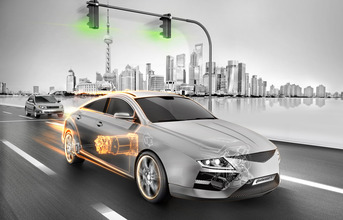
The technology company Continental has announced a new strategy for its hose and line business revolving around two primary objectives: "On the one hand, we are more strongly targeting eMobility as a major growth market. On the other hand, we are committed to helping automotive manufacturers further reduce emissions and meet increasingly strict emission standards," explains Philip Nelles, Head of Mobile Fluid Systems - the business unit at Continental responsible for automotive hoses and lines. "Hoses and lines are essential factors in achieving emission-free and low-emission mobility. This is where we are stepping in to make an important contribution to sustainable mobility, and our order books are already reflecting this. Last year, alone, we received orders worth roughly 275 million euros for hoses and lines to be used in battery and hybrid drives for vehicles produced by German, Asian and North American manufacturers," he continues. The reason for this trend is rising global demand for zero-emission electric and hybrid vehicles.
A major feature of Continental's lines and hoses is sophisticated thermal management. This is driven by the fact that batteries in electric vehicles are most efficient when operated at temperatures ranging from 20 to 40°C. Battery life can be increased by either cooling or heating batteries in response to ambient temperatures. This leads to complex circuits which place significantly greater demands on individual components, including hoses and lines. Hoses and lines help to keep batteries and highly sensitive control circuits cool in electric and hybrid vehicles. Among other things, this has a beneficial impact on the range of battery-powered vehicles.
Another promising application for Continental's high-tech lines is for air conditioning systems utilising R744 as the most climate-friendly refrigerant available today. These next-generation lines help to save weight while regulating the temperature of the passenger compartment in a highly efficient and climate-friendly way. As an integral part of a vehicle's temperature management system, they contribute to increased efficiency and range.
Continental also helps automotive manufacturers in the quest to meet increasingly stringent exhaust and emission standards. "Our efficient hose and line systems are helping customers to consistently and sustainably lower emissions of hydrocarbons, carbon and nitrogen oxides and particulates, for example by means of exhaust purification technologies involving particulate filters or selective catalytic reduction (SCR)," explains Nelles. Lower weight also translates into lower emissions.


























